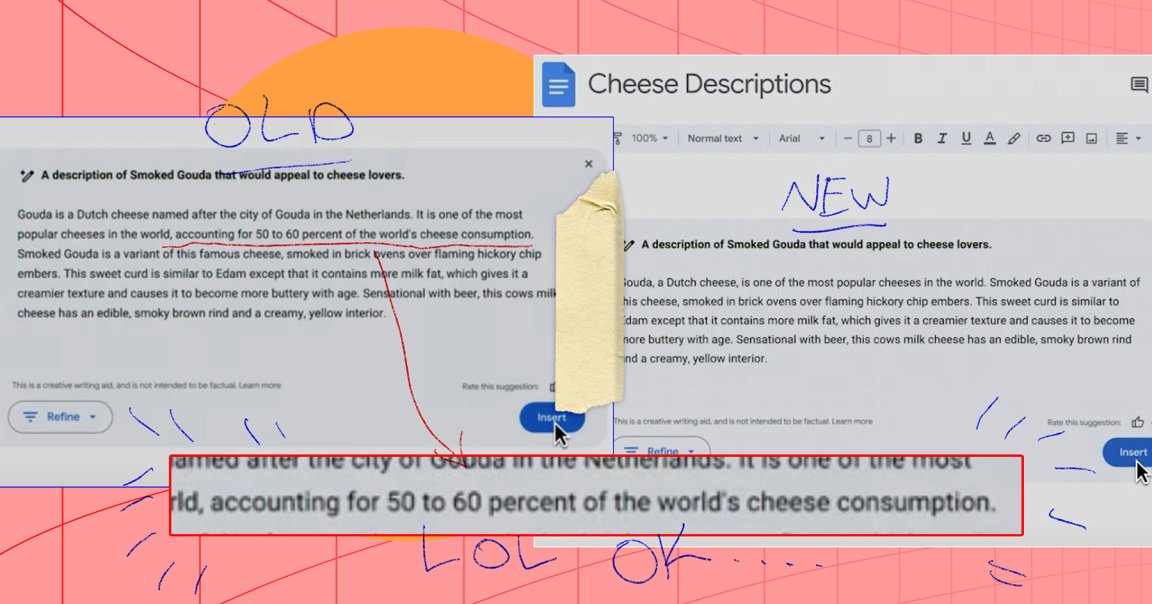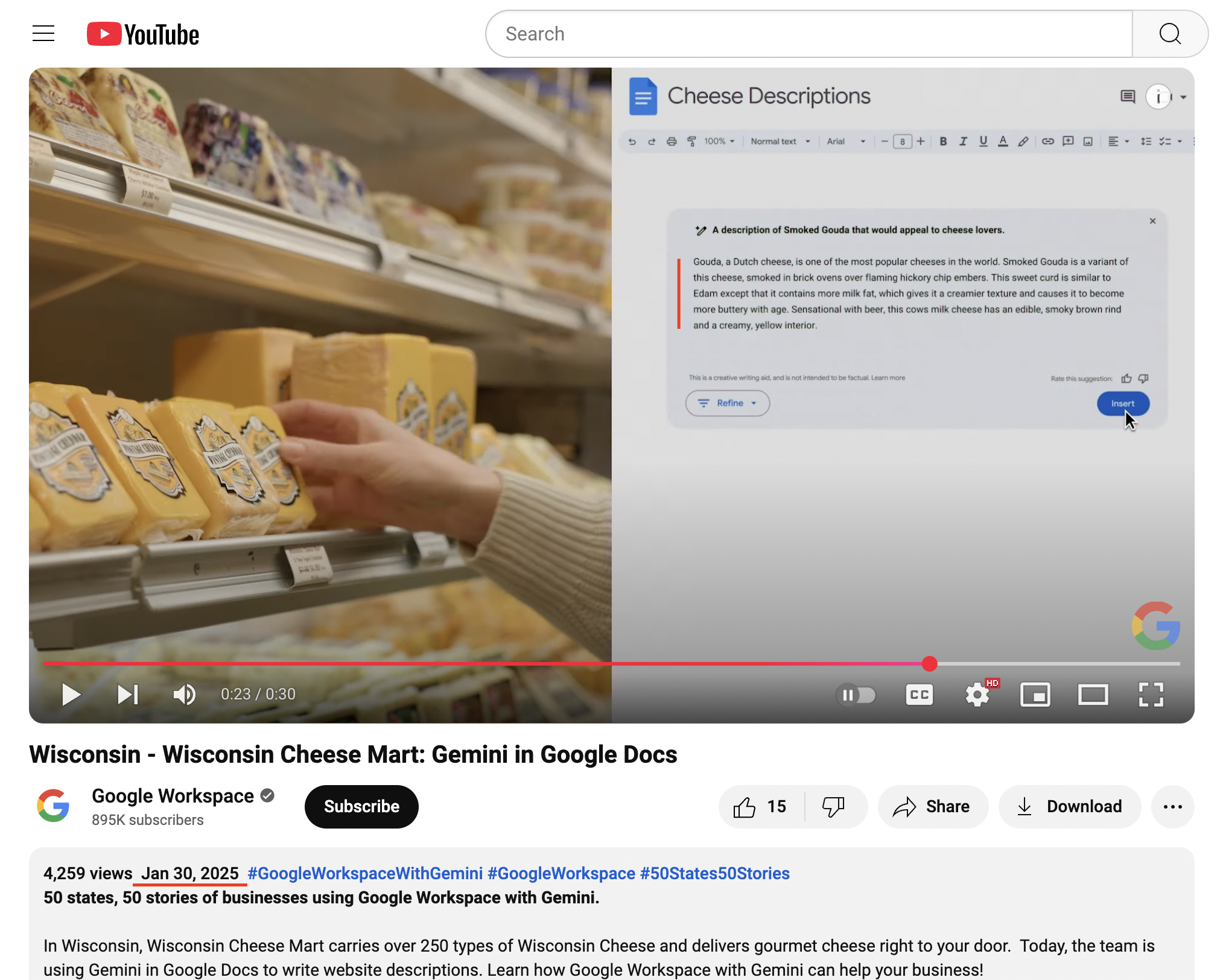
Google retroactively edited the YouTube video of an advertisement for Gemini, the company’s core AI model, to remove an obvious error the AI made about the global popularity of gouda cheese.
On January 30, the search giant released a Super Bowl ad promoting “Google Workspace with Gemini,” which is described by the company as an AI-integrated “upgrade” to its workspace products like Docs, Sheets, and more. In the ad, a down-home Wisconsin cheese mart owner, explaining that the bulk of his business these days is done through e-commerce, discusses how helpful Gemini has been in writing web product descriptions about the various cheeses he sells.
The video then shows Gemini being prompted with a request to generate a “description of Smoked Gouda that would appeal to cheese lovers.” In response, the AI produces a short paragraph of copy that, amid glowing sentiments about gouda’s creamy texture, confidently declares that gouda accounts for “50 to 60 percent of the world’s cheese consumption.”
X-formerly-Twitter user and travel blogger Nate Hake was quick to call this gouda claim into question. After all, though gouda is certainly popular, 50 to 60 percent of total global consumption is a lot of cheese, especially considering the immense popularity of cheeses like cheddar and mozzarella. The Verge, which first reported on the initial incident over the weekend, consulted a professor of agricultural economics at Cornell University named Andrew Novakovic, who agreed that “while Gouda is likely the most common single variety in world trade, it is almost assuredly not the most widely consumed.”
Regardless, Google defended the AI-generated gouda assertion, with Google Cloud apps president Jerry Dischler even taking to X to insist that the error was “not a hallucination.”
“Gemini is grounded in the Web — and users can always check the results and references. In this case, multiple sites across the web include the 50-60 percent stat,” Dischler wrote in response to Hake. “Gouda news: many love this cheese! Bada news: not everyone thinks it’s as grate.” (When the Verge reached out for comment, Google directed them to Dischler’s X post.)
It’s unclear exactly what sites Dischler was referring to, but it’s true that some — including the authoritative-sounding Cheese.com — do make that exact claim.
But of course, that’s the problem Google and other tech companies keep running into: when you automate the process of gathering information, it’s easy enough to grab whatever information looks true and repeat it as fact, but hard to duplicate the power of a skeptical human who can evaluate a sketchy claim before putting it on their small business’ website — or into a multi-million dollar Super Bowl ad, for that matter.
Regardless of its cutesy nothing-statement, it seems that Google recognizes the gravity of the error. As Hake first caught once again, it looks like Google quietly scrubbed the embarrassing mistake, which has now mysteriously disappeared from the YouTube version of the ad entirely.
The description of the YouTube video doesn’t denote any kind of update; it also still lists the original publish date of the ad, January 30. Before and after screenshots, though, clearly show the alteration.

In addition to admitting that its AI still isn’t ready for prime time, the quiet update also appears to be a remarkable exertion of Google’s power as the owner of YouTube.
Per YouTube policies, creators may retroactively alter or edit smaller details of uploaded videos, like the title, description, and title cards. But making major edits to the actual content of an uploaded video has long been forbidden; a substantive alteration, like the correction of a factual error stated mid-video, requires creators to upload a new clip entirely. Google, though, appears to have broken this rule for itself by uploading an edited video under the same URL.
After this article was published, a spokesperson for Google confirmed to Futurism that the ad was edited, explaining that the change was made after Google had consulted with the featured cheese shop owner.
“After the question came up about the Gouda stat, we spoke with the owner of the Wisconsin Cheese Mart to ask him how he would handle it,” said the spokesperson. “Following his suggestion to have Gemini rewrite the product description without the stat, we updated the UI to reflect what the business would do.”
The company declined to comment on whether it had flouted YouTube’s policies.
More on Google and AI: Google’s AI Overview Believes Baby Elephants Can Sit in the Palm of a Human Hand